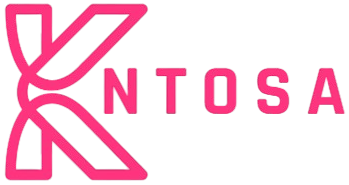HEALTH
The Surge in Peptide Chemistry: A New Frontier in Pharmaceutical Development

The Rise of Peptide Chemistry in Medicine
In the ever-evolving drug discovery landscape, peptide chemistry is increasingly vital. These organic compounds, composed of chains of amino acids, possess distinct characteristics that set them apart from conventional small-molecule medications. Their targeted nature results in treatments that are not only effective but also boast a safer profile, minimizing off-target effects that can lead to unwanted side effects. As a result, the pharmaceutical industry is increasingly turning to peptides as a novel solution for complex health conditions.
With the burgeoning interest in peptide-based therapeutics, the demand for quality-assured custom peptide synthesis services has risen significantly. Companies invest heavily in optimizing peptide production processes to meet the growing need for precision treatments. This is not merely about developing new therapies but also enhancing the efficacy and safety of existing medications, expanding the potential market, and offering hope to countless patients worldwide.
Innovations Driving the Field
The progression in peptide synthesis and modification technologies has been pivotal to the ongoing success of peptide drugs. Modern techniques like solid-phase peptide synthesis allow scientists to construct peptides with remarkable precision and efficiency. These advancements have opened doors to creating complex peptides particular to their biological targets, allowing for developing therapies tailored to individual patient needs.
By evolving these sophisticated methodologies, researchers can achieve precise modifications essential in crafting potent therapeutic agents. These tailored approaches address issues related to the dosage and timing of treatment and enhance the drugs’ overall therapeutic index, thus maximizing their clinical benefits and minimizing risks.
Peptide-Based Drugs in Chronic Disease Management
Chronic conditions, including diabetes and obesity, have persistently challenged the global health sector, necessitating the development of innovative strategies for their effective management. Peptide-based therapeutics have emerged, offering new hope in this regard. Their ability to selectively interact with specific receptors allows them to modulate physiological pathways more effectively than many conventional drugs. This targeting is particularly advantageous in chronic disease management, where long-term safety and efficacy are critical.
Take, for example, the use of peptides in diabetes management. Insulin, a naturally occurring peptide, exemplifies the capability of such therapy to control blood glucose levels effectively. Emerging studies and clinical trials further support the utility of peptide therapeutics, indicating that they might soon become the backbone of chronic disease management, revolutionizing how we approach such conditions.
Economic Impact of Peptide Chemistry
Beyond scientific innovation, peptide chemistry is reshaping the economic landscape of the pharmaceutical industry. As these therapeutics continue to show promise, the global healthcare market is witnessing a surge in investments to advance peptide research and development. Companies acknowledge that peptide-based drugs hold the potential to alter the cost dynamics of healthcare, reducing expenses through targeted, efficient treatments with reduced side effect profiles.
The impact of these economic changes reaches far beyond mere cost reductions. By fostering better patient outcomes and improving quality of life, peptide therapeutics play a significant role in the larger discourse surrounding healthcare accessibility and affordability. As the industry adapts to these developments, peptide chemistry establishes a foundation for substantial economic progress within the medical sector.
Safety and Challenges in Peptide Drug Development
Despite their promising implications, the journey of peptide drugs from laboratory to market is fraught with challenges. One key issue is peptide stability. Peptides, by nature, are more prone to degradation than larger proteins or small molecules. This can complicate large-scale production and long-term storage, presenting a significant hurdle in widespread adoption.
Researchers focus on developing advanced stabilization techniques and innovative drug delivery systems to overcome these challenges. These efforts aim to enhance peptide drugs’ shelf life and bioavailability, ensuring their efficacy remains intact from production to patient administration. Such innovations are crucial as the industry works tirelessly to unlock the full potential of peptide therapeutics globally.
Future Perspectives
Looking ahead, the future of peptide chemistry in pharmaceuticals appears promising. With continuous advancements in technology and methodology, scientists are poised to push the boundaries of what peptide-based treatments can achieve. From improved drug delivery systems to more robust stabilization methods, the ongoing research in this field is set to enhance the application of peptides in medicine dramatically.
This promising trajectory suggests that peptide-based drugs could become integral components of personalized medicine strategies, offering tailor-made solutions that cater to individual genetic profiles. As such, the healthcare landscape will likely experience significant shifts, with peptides at the forefront of this evolution, driving personalized healthcare innovations.
Conclusion
The ascendance of peptide chemistry is revealing its vast potential, clearly illustrating that this groundbreaking field holds remarkable promise for the future of medicine. Peptides, composed of brief chains of amino acids, are tackling intricate scientific challenges and transforming various economic dimensions of the pharmaceutical industry. Their significance is increasingly vital in developing innovative therapeutics and targeted treatment approaches.
As dedicated researchers and healthcare providers navigate these exciting advancements, it is abundantly clear that the trajectory of drug development is deeply intertwined with the immense capabilities of peptides. This new medical frontier presents an extraordinary opportunity to revolutionize treatment paradigms globally, potentially improving patient outcomes and addressing previously unmet medical needs. The future of healthcare may hinge on the breakthroughs that peptides can facilitate, making this an exhilarating time for the field.
HEALTH
Cold Plunge Tubs: A Refreshing Approach to Health and Wellness

Introduction
The wellness world continually evolves, with new trends frequently emerging in pursuing better physical and mental health. Among the latest innovations attracting a devoted following are cold plunge tubs. Known for their bracing and invigorating effects, these tubs offer an immersive experience to enhance vitality, recovery, and mood. Individuals across the globe, from professional athletes to wellness enthusiasts, are seeking out cold plunge tubs available in Salt Lake City to embrace the potential health advantages associated with cold water immersion.
While submerging yourself in icy water might sound challenging, the renewed sense of energy and mental clarity many report has made this practice an appealing addition to modern wellness routines. Yet, the excitement around cold plunge tubs is balanced by essential questions about their effectiveness, safety considerations, and best practices for use. This article examines what makes these tubs unique, investigates purported benefits, reviews the scientific evidence, and highlights how anyone interested can safely start enjoying the experience.
What Are Cold Plunge Tubs?
Cold plunge tubs, sometimes referred to as ice baths or cold water immersion tubs, are specialized baths kept at low temperatures usually between 50°F and 59°F (10°C and 15°C). Designed for short-duration full-body immersion, they draw inspiration from ancient hydrotherapy traditions that span cultures and centuries. Modern technology has made it possible to enjoy these therapeutic plunges at health clubs and spas and in private homes, making them more accessible than ever before.
Using a cold plunge tub is straightforward: individuals immerse themselves entirely in the cold water for a few minutes, typically between 2 and 10 minutes per session. The initial shock is quickly accompanied by a numbing sensation, with many reporting feelings of invigoration and alertness after each plunge. The practice is lauded for its simplicity and adaptability, fitting easily into post-exercise routines or as a standalone ritual to boost daily wellness.
Potential Health Benefits
Proponents of cold plunge therapy cite a wealth of potential benefits. The most frequently mentioned advantages include:
- Improved blood circulation: Exposure to cold causes blood vessels to constrict and dilate, which may help promote healthy blood flow.
- Reduced muscle soreness and faster recovery: Athletes regularly use cold water immersion after intense activity to decrease soreness and speed up healing. Research suggests cold plunging can help reduce delayed onset muscle soreness following strenuous workouts.
- Mood enhancement and mental clarity: The jolt of a cold plunge is believed to trigger the release of endorphins, leading to elevated mood and increased mental alertness.
Many see incorporating cold plunges into a self-care routine as a way to support physical recovery and emotional resilience, offering a holistic approach to wellness. For more information on how cold water therapy promotes mental health, consult this resource from Healthline.
Scientific Perspectives
The popularity of cold water immersion has sparked a growing body of research exploring its effects. Some scientific studies support the claims that cold plunges help reduce inflammation, lower perceptions of muscle soreness, and aid in the recovery process after exercise. For example, analysis by the National Institutes of Health found that cold water immersion can offer benefits in specific contexts, particularly for athletes.
However, the scientific community also cautions that benefits can vary based on individual differences, exposure time, and the plunge temperature. Notably, using cold plunges immediately after strength training may decrease muscle growth and adaptive response by blunting the inflammatory process required for muscle repair. Experts suggest moderation and informed use, emphasizing that what works well for one person may not for another. Thus, cold plunging should be tailored to personal goals and health profiles.
Celebrity Endorsements
The allure of cold plunge tubs has grown in part thanks to high-profile endorsements. Celebrity chef Guy Fieri, among others, has shared insights on incorporating cold plunges into his health regimen, praising their effects on recovery, clarity, and resilience. Such endorsements fuel mainstream curiosity, encouraging more individuals to explore whether a regular cold plunge might enhance their wellness routine.
Safety Considerations
Despite their potential, cold plunge tubs have essential safety guidelines that every user must heed. Detailed below are some of the risks and how to mitigate them:
- Hypothermia: Extended time in cold water can dangerously lower your core body temperature.
- Cardiovascular stress: Sudden cold immersion can spike heart rate and blood pressure, which is particularly risky for those with pre-existing heart conditions.
- Shock response: The body may react to cold with involuntary gasps and rapid breathing, heightening risk if the face submerges unexpectedly.
To ensure safety, it’s best to start with brief exposures, keep water within recommended temperature ranges, and seek medical advice if you have cardiovascular or respiratory concerns. Children, the elderly, and those with chronic conditions should consult healthcare providers before trying cold water immersion.
Incorporating Cold Plunges into Your Routine
For those eager to try cold water therapy, gradual introduction is key. Here are actionable steps to follow:
- Start gradually with shorter plunges in slightly warmer water, increasing duration and decreasing temperature as your body adapts.
- Monitor your body’s response: Be attentive to sensations of discomfort, dizziness, or pain—these are signs to exit the water and reassess your approach.
- Combine with other wellness routines: Enhance recovery with complementary practices such as stretching, light movement, or meditation. Blending these methods amplifies overall wellness effects.
Integrating cold plunges after workouts is beneficial, as well as following best practices highlighted by sports therapists and trainers to maximize results and safety.
Conclusion
Cold plunge tubs represent a compelling pathway to renewed health and mental resilience. While anecdotal evidence is promising and early research supports several positive claims, users should remain mindful of individual needs and safety guidelines. As interest rises and access expands, those wishing to try this invigorating practice should do so with care, intention, and respect for their body’s limits.
HEALTH
Harnessing the Power of Herbal Formulas for Holistic Wellness

In an age where people increasingly turn away from synthetic treatments and rediscover ancient healing traditions, herbal formulas have emerged as powerful tools for achieving holistic wellness. These time-tested remedies are more than alternatives—they offer a natural, balanced approach to supporting the mind, body, and spirit. From indigenous roots to modern formulations, herbal blends continue to prove their value in promoting long-term vitality.
The Rise of Herbal Medicine in Modern Wellness
Herbal medicine has been a cornerstone of health practices across cultures for thousands of years. As consumers become more conscious of what they put in their bodies, many are embracing the efficacy of plant-based solutions. For immune support, stress relief, digestion, or energy enhancement, herbal formulas provide a targeted and gentle approach with minimal side effects. Unlike pharmaceutical options, which often focus on suppressing symptoms, herbal remedies address underlying imbalances in the body. This makes them especially compatible with holistic lifestyles prioritizing prevention and overall well-being.
What Makes a Wellness Herbal Formula Effective?
A truly effective wellness herbal formula is built on several key principles: synergy, quality, and tradition. Rather than relying on a single herb, a well-crafted formula uses a combination of plants to amplify each other’s effects. This synergy can enhance potency, reduce potential side effects, and create a more balanced response in the body. Quality sourcing is also critical. Herbs must be grown, harvested, and processed carefully to retain their therapeutic properties. Reputable producers, like those behind the Wellness Herbal Formula at Two Feathers, emphasize sustainability, indigenous knowledge, and laboratory testing to ensure safety and effectiveness.
Integrating Herbal Formulas into a Holistic Lifestyle
Holistic wellness isn’t just about what you take—it’s about how you live. Herbal formulas are most beneficial when integrated into a lifestyle that includes mindful eating, regular movement, stress management, and emotional well-being. For instance, adaptogenic herbs such as ashwagandha or rhodiola can support your body’s response to stress, while chamomile or valerian root may aid sleep and relaxation. Many also find that herbal supplements complement yoga, meditation, and acupuncture. These practices allow the herbs to work more deeply by supporting the body’s natural rhythms and reducing energetic blockages.
Honoring Indigenous Knowledge and Natural Healing
Many of today’s most effective herbal formulas are rooted in the wisdom of indigenous communities. These traditions, passed down through generations, offer insights into how specific plants interact with the body’s systems. The creators behind Two Feathers honor this ancestral knowledge by combining it with modern research to deliver a product that respects nature and science. Using a wellness herbal formula that carries this kind of heritage is more than a health decision—it’s a way of participating in a legacy of healing and stewardship.
Conclusion: Embrace Nature’s Wisdom for Vibrant Living
Harnessing the power of herbal formulas is a journey back to nature, back to balance, and ultimately, back to yourself. Choosing a holistic path with herbal support fosters deep and lasting well-being in a world prioritizing quick fixes. Whether addressing a specific concern or seeking to feel more energized and centered, the wellness herbal formula offers a natural, time-honored solution rooted in care, tradition, and results. Explore the story behind the formula and take the first step toward empowered, holistic wellness.
HEALTH
Ensuring Hygiene: The Backbone of Healthcare Facilities

The Importance of Hygiene in Healthcare
Ensuring high hygiene standards in healthcare facilities is paramount to safeguarding patient health and providing a sanitary environment. With the growing intricacy of medical procedures and the vulnerability of patients, especially those with compromised immune systems, there is a pressing need for strict cleaning protocols. Facilities offering medical cleaning services Jacksonville FL, exemplify how strategic cleaning efforts can contribute to overall healthcare quality. Effective cleanliness practices foster recovery and establish trust in healthcare environments. Therefore, the consistent upkeep of sanitation becomes a cornerstone of prevention and reputation management.
Preventing Infections Through Cleanliness
Infection prevention is a primary concern in healthcare settings, where the risks of transmitting diseases are significantly heightened. It can be vastly minimized through rigorous cleaning and disinfection practices. Stringent adherence to cleanliness protocols prevents the proliferation of pathogens. Healthcare-associated infections (HAIs) often result from lapses in hygiene, culminating in extended hospital stays and additional medical costs. The chances of infections can be substantially reduced by focusing on cleansing high-touch areas such as doorknobs, bedding, and medical equipment with appropriate materials. This proactive approach signifies an essential preventive measure for patient safety.
Effective Cleaning Techniques for Healthcare Facilities
Healthcare facilities must employ cutting-edge techniques to ensure cleanliness and mitigate infection risks. One such method is using color-coded tools to prevent cross-contamination, differentiating between various cleaning zones. Pairing these with proven disinfectants ensures the elimination of bacteria and other pathogens. Microfiber cloths leverage their microfiber technology, which is more effective at trapping dust, dirt, and germs than traditional materials. Additionally, steam cleaning aids in deep sterilization, while HEPA-filtered vacuums help minimize airborne allergens and bacteria proliferation, maintaining air quality within healthcare premises.
Real-Life Examples
Several healthcare institutions have illustrated the impact of solid cleanliness protocols with tangible outcomes. For instance, by implementing advanced cleaning systems, a hospital in Sweden experienced a remarkable 30% decrease in healthcare-associated infections. It was achieved by incorporating a strict regimen of cleanliness that involved not only the physical act of cleaning but a cultural shift towards prioritizing hygiene across the institution. The effectiveness observed in these cases underscores the pivotal role cleaning plays in fostering patient health resilience and institutional credibility.
The Role of Staff Training in Maintaining Cleanliness
Training healthcare staff in meticulous cleaning protocols is pivotal for institutional hygiene excellence. Staff training ensures that workers are up-to-date with the latest cleaning methodologies and understand the criticality of their roles in infection prevention. Like those advocated by National Public Radio’s Health News, well-structured training programs are foundational in promoting thorough understanding and skill proficiency among staff. Ongoing educational sessions rejuvenate staff awareness regarding emerging cleaning technologies and the continuous improvement of hygiene standards.
Adopting Sustainable Cleaning Practices
The shift towards sustainability in healthcare cleaning is gaining momentum, encouraging eco-friendly solutions. These entail biodegradable cleaning agents that responsibly address disinfectant needs without compromising environmental integrity. Sustainable cleaning practices also reduce water and energy consumption, fostering an eco-responsible healthcare environment. These efforts minimize the ecological footprint and create healthier workspaces for patients and healthcare providers, solidifying a balance between environmental stewardship and sanitation efficacy.
Future Trends in Healthcare Cleanliness
Technological advancements herald a promising future for healthcare cleanliness, with innovations enhancing both effectiveness and efficiency. Ultraviolet (UV) light sterilizers eliminate pathogens by disrupting microbial DNA, while autonomous cleaning robots facilitate consistent sterilization practices, especially in hard-to-reach areas. As these technologies evolve, the capacity for detailed monitoring and auditing of cleaning tasks positions healthcare facilities at the vanguard of infection control. This embrace of technology complements traditional cleaning techniques and sets the stage for the next evolution in healthcare hygiene management.
Conclusively, the role of cleanliness in healthcare settings remains irreplaceable amidst evolving health threats and technological advancements. With a robust combination of innovative techniques, well-executed staff training, eco-conscious practices, and an openness to future trends, healthcare facilities can ensure the highest hygiene standards and set benchmarks for global health and safety standards.
-

 BLOG1 year ago
BLOG1 year agoElizabeth Huberdeau: Women Behind The WWE Superstar
-

 NEWS1 year ago
NEWS1 year agoMisty_moless_2: A Rising Star in the Digital World
-

 EDUCATION1 year ago
EDUCATION1 year ago7 Top Arts Educational Schools in London Every Student Should Know About
-

 GAMES1 year ago
GAMES1 year agoWest vs East Match Player Stats
-

 BLOG1 year ago
BLOG1 year agoite:mommyandlove.com/baby-names/: Discover Unique and Meaningful Baby Names
-

 BLOG1 year ago
BLOG1 year ago3d659.com blog: A Resourceful Hub for Information
-

 BLOG1 year ago
BLOG1 year agoP72 National Pitch Competition: Nurturing the Entrepreneurs of Tomorrow
-

 TECHNOLOGY1 year ago
TECHNOLOGY1 year agoNpoint S/N 135064: Understanding Its Significance & Applications
